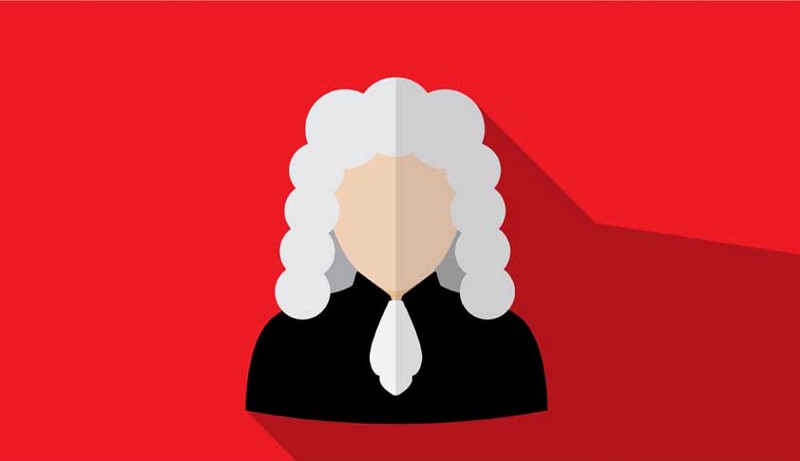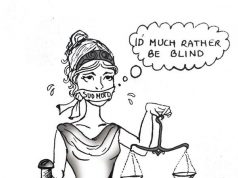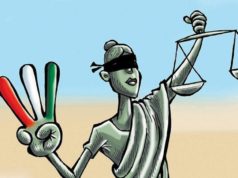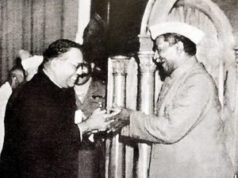What is Rule 7B of the Supreme Court Chamber Allocation Rules?
As per the SC Chamber Rules, last amended in 2007, “[i]n case of death of allottee of a [Supreme Court Lawyers’] chamber, his son/daughter/spouse, if an advocate, may be allotted the said portion of the chamber if the Allotment Committee is satisfied that such person is practising in the Supreme Court.”
Ordinarily, lawyers’ chambers in the Supreme Court are allocated on the basis of certain eligibility criteria prescribed by a notice from the apex court dated 31 October, 2017. These include minimum number of appearances as well as relative seniority of the applicants.
What is the value of Supreme Court chambers?
Supreme Court chambers are an extremely valued and limited resource among the thousands of advocates that ply their trade within this hallowed institution. These few hundred chambers, located in prime spots within and in the vicinity of the Supreme Court complex offer a professional boost to the advocates who occupy them by lending instant credibility to these advocates in the eyes of their clientele, by virtue of practising in such premium proximity of the Supreme Court. This makes them a prized possession for the thousands of advocates who practice in the Supreme Court, and which is what necessitated the SC Chamber Rules laying down clear criteria for the allocation of these chambers among advocates.
The impugned petition does not challenge the reasonability of these criteria, but merely Rule 7B, which acts as an exception to these criteria. The challenge is made on grounds of unconstitutionality of the Rule, as it is alleged that the Rule “is patently discriminatory and violative of Article 14 of the Constitution of India as it is violative of the rule of seniority and minimum number of appearances that is prescribed for other advocates”, and is also violative of “the principle of level playing field for professional advocates who otherwise satisfy the relevant criteria, thereby violating their rights under Article 14 and Article 19 (1)(g) of the Constitution of India”. [Quotes are from the prayer of the petition, which the petitioner Mr Vishnu Shankar Jain was kind enough to share with us]
This post shall first examine the constitutionality of the Rule from the vantage point of Article 14. We will then attempt to determine where this Rule stands vis-à-vis classic liberal principles.
Constitutional analysis
Article 14 of the Indian Constitution simply states that “[t]he State shall not deny to any person equality before the law or the equal protection of the laws within the territory of India”. The meaning of this terse proclamation has been clarified by the Supreme Court in various contexts over the years.
One such significant clarification about the meaning of this provision is the doctrine of reasonable classification. This doctrine simply means that it is legally permissible to classify persons or things for the application of law, as long as the law in question is reasonable and not arbitrary. This is because ‘equality is antithetical to arbitrariness’.
How does one determine whether a classification is reasonable or not? According to the Supreme Court, it must fulfil the following two tests: (1) that the classification is founded on an intelligible differentia and, (2) that differentia has a rational relation to the object sought to be achieved by the impugned legislative or executive action.
Looking at Rule 7B through this two-pronged test, it is evident that the rule makes a classification between advocates practising in the Supreme Court whose spouse/parent has been allotted a Supreme Court lawyer’s chamber, and other advocates practising in the Supreme Court, for preferential allotment of the chamber. The differentia is intelligible and clear enough. Does this differentia have a rational nexus with the objective of the Rules?
The Objective of the Rules is to lay out unambiguous criteria for the allocation of the scarce resource of Supreme Court lawyers’ chambers among advocates practising in the Supreme Court, and establish conditions for the operation of the allotment. The allocation criteria, as we have noted earlier, are based on factors such as seniority and number of appearances. Whether one’s spouse or parent is an allottee of a chamber is not among these factors. Hence, Rule 7B fails the rational nexus test, and does not seem to provide a reasonable classification.
Thus, it seems that the primary contention in the petition is correct, and Rule 7B is indeed unconstitutional by being in violation of Article 14 of the Constitution.
Classic liberal analysis
To begin an examination from a classic liberal lens, it is vital to note at the outset that the property in question, that is, the Supreme Court Lawyers’ Chambers, is owned by the Supreme Court of India. To that extent, it is public property. When specific chambers are allocated by the Court to specific advocates, it is not the ownership of the chamber that is passed on to the advocate, but merely a license to use it. This license to use is limited by the SC Chamber Rules (through, for instance, prescription of security deposit before allotment and license fee along with service and maintenance charges for continuation of allotment, prescription of usage of chambers only as Lawyers’ Offices, prohibition of transfer, alignment or sub-letting the chamber to any other person, prohibition of unauthorized construction within the chamber premises, prescription of chamber usage timing, and conditions under which allotment shall be terminated).
The question that, then, arises is: whether the license to use a public good is inheritable from one’s parent/spouse?
Most classic liberals agree on the principle that one should be able to pass on one’s personal wealth, power and access to leisure to one’s kin. However, in this case, it is not the permanent ownership of the property in question that is bestowed upon the allottee-advocates, but only a temporary license to use it. This license is not vested for perpetuity either. Since the property is not owned by the allottee, the question of passing it on does not arise altogether. Rendering a personal inheritable right in a public good will be in violation of the liberal pursuit of fair equality of opportunity, as well as to lessen inequality of undeserved wealth.
Hence, Rule 7B is in contravention of classical liberal principles as well.
Post Disclaimer
The opinions expressed in this essay are those of the authors. They do not purport to reflect the opinions or views of CCS.





